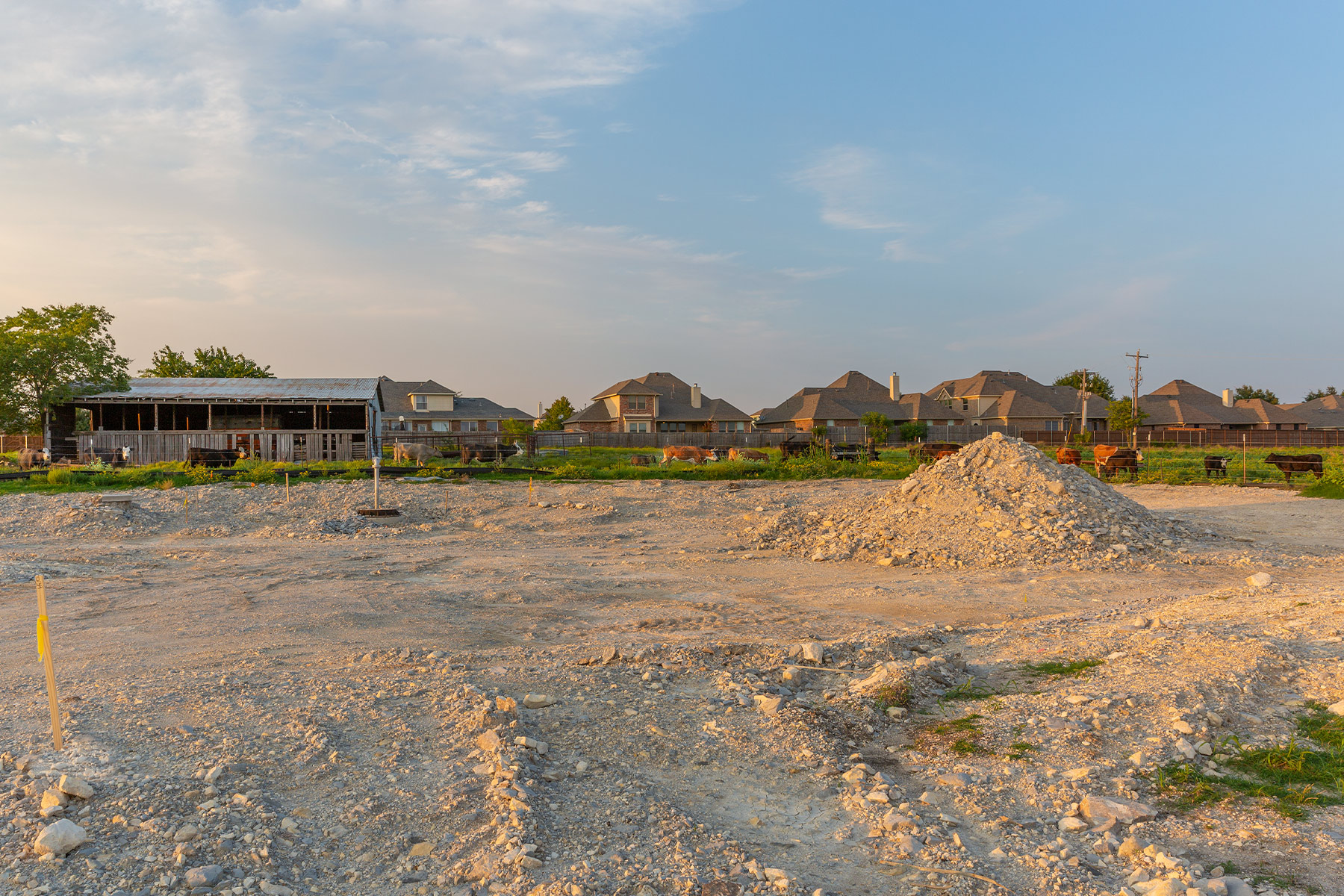In November, I wrote about how the planned expansion of Highway 380 along the northern fringe of Dallas-Fort Worth’s sprawling metro both deeply divided a growing community and doubled down on objectionable — though, in Texas, all too common — attitudes about transportation, highway development, and long-range urban planning.
However, beyond community resistance to aspects of the Highway 380 project and the argument that the road may not really be the best way for the state to spend precious transportation dollars, there are a more immediate and practical obstacles to the $2.5 billion project — such as the lack of available land for the new road expansion.
Yesterday, the Collin County Commissioners Court voted to table a vote to purchase a section of land that falls within TxDOT’s most recent Highway 380 expansion alignment, punting the controversial decision until an upcoming TxDOT meeting later in the month. The reasons for the vote and the delay highlight many of the uncomfortable uncertainties that still swirl around the highway project that many assume is all but ready to break ground:
The new road alignment isn’t a done deal. Even though the land Collin County commissioners could have voted to purchase yesterday falls within TxDOT’s preferred Highway 380 alignment, that alignment is by no means set in stone. TxDOT still needs to complete its Environmental Impact Statement, and some residents are holding out hope that that process can help tweak the final alignment of the road. If you believe TxDOT’s EIS process is a formality and there’s no changing the course of that ship once it leaves the harbor, I’ll remind you of the history of the Trinity Toll Road.
Time is ticking. There are pressures on the county to move fast, even as the EIS process is set to take two more years to complete. As staff and McKinney Mayor George Fuller made clear at yesterday’s meeting, the longer Collin County waits to purchase the land, the more expensive the highway project will become:
“[TxDOT has] made that as clear as I think they can, and delaying purchasing of the land in that area is going to … end up costing us a great deal more money as it gets developed,” Fuller said, according to Community Impact Newspaper. “We have an opportunity to preempt that, and I believe it’s very important.”
There are other city projects in wait. Much of the consternation and combativeness surrounding the Highway 380 expansion fight boils down to a simple reality: building a highway through a fast-growing community sets competing civic interests against one another. One of those interests that emerged at yesterday’s meeting was a North Texas Municipal Water District plan to install a large water supply line to the city of McKinney. The water district wants to build its line as soon as possible, and it hopes to do so within the easement of the new road. But that easement won’t exist until Collin County pulls the trigger on the alignment. And that alignment hasn’t been set in stone by TxDOT, and plenty of Collin County residents still don’t like it. So you can add the water district to the scorecard of powerful voices pushing for some version of the road.
Some neighbors still don’t want to sell. The reason Collin County commissioners opted to delay yesterday’s vote was that they know that there is at least one neighbor living along the proposed route that will not sell to the county. The county has $20 million in bond money earmarked for Highway 380 land acquisition, but if there are any holdouts, the county will have to revert to eminent domain. That will be painful — both emotionally and politically — particularly in conservative Collin County.
Collin County Judge Chris Hill brought up this possibility [of using eminent domain]. In that case, [Collin County Engineering Director Clarence] Daugherty said, the county would have to design an alternative road plan, then condemn and seize the land by eminent domain.
“I think it’s likely … there will be at least one parcel … that needs to be taken by condemnation,” Hill said. “I just think that’s realistic. So, again, … if we were to start by saying, ‘I won’t support eminent domain ever,’ I think that’s equivalent to saying, ‘We’re not going to have a highway.’”
The need for eminent domain may be the rubber-meets-the-road moment in this entire debate. Thus far, all the parties involved — from politicians and state engineers to community activists and local businesses — have agreed, at least in theory, that there is a need for an expanded Highway 380. But this perceived need for the road is based on questionable traffic models, outdated transportation mentalities, and blind faith in the pronouncements of the state transportation agency.
The twisted route of the new planned alignment of the road was designed to avoid business interests and help facilitate the further development of McKinney’s remaining open lands. Thus far, political leaders have been able to advocate for the project based on assumptions about how road construction contributes to a town or region’s economic success — assumptions that I would argue are misguided. But now the prospect of using eminent domain may force Collin County and McKinney politicians’ ideological hand. Will they go as far as to seize private property in the name of building a road whose design and purpose is, ultimately, the result of following the unchallenged assumptions voiced by a powerful state governmental agency?
For now, commissioners will wait and see what comes from a planned virtual TxDOT meeting on January 21 and revisit the topic after that.






